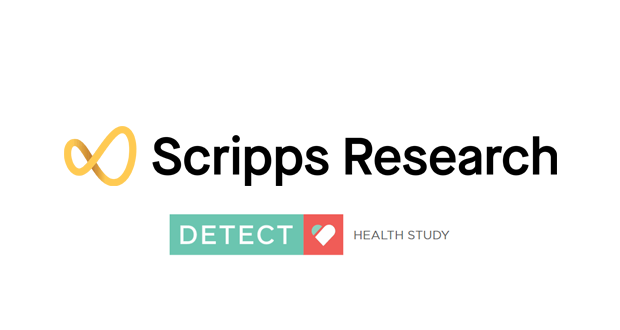Scripps Research is collaborating with frontline workers at the San Diego Metropolitan Transit System and Scripps Health to help detect and track viral illnesses in near real-time.
San Diego CA— In a unique research collaboration, digital medicine experts at Scripps Research are partnering with transit and healthcare workers in San Diego to accelerate detection and surveillance of COVID-19 and other viral illnesses using wearable devices.
By analyzing de-identified health data collected from smartwatches and activity trackers, the scientists behind the DETECT study are evaluating whether individual changes in key physiological metrics—such as heart rates, sleep and activity levels—could help detect the onset of viral infection before symptoms manifest.
“Due to the nature of their jobs, transit and healthcare workers are at higher risk of exposure to COVID-19 and other contagious respiratory illnesses,” says Jennifer Radin, PhD, an epidemiologist at Scripps Research who is leading the study. “When your heart beats faster than usual, it can mean that you’re coming down with a cold, flu, coronavirus or other viral infection. Your sleep and daily activities can also provide clues. Being able to detect changes to these measurements early could allow us to improve surveillance, prioritize individuals for testing and help keep workplaces and communities safe.”
Partnering with frontline workers
To enable essential workers to join the study, the scientists distributed 500 Fitbit Ionic™
devices to frontline transit workers and hospital staff across San Diego. The devices were donated by Fitbit, which, together with Scripps Research, recently launched a research consortium to promote institutional collaboration and consumer participation in digital clinical research efforts to help detect, track and contain infectious diseases like COVID-19.
By examining data from individuals at greater risk of virus exposure, scientists believe they may learn more about how to differentiate between specific illnesses, such as COVID-19 or influenza, during early stages using digital devices.
Throughout the COVID-19 pandemic, San Diego Metropolitan Transit System (MTS) employees have provided uninterrupted transportation services to the public, including to people who work in grocery stores, hospitals and other places offering essential services. MTS is the first transit agency in the nation to participate in the study.
“MTS employees provide a critical service that enables our community to continue to function through this public health crisis,” says Sharon Cooney, MTS chief executive officer. “We value the opportunity to volunteer to participate in the DETECT study and hopefully help accelerate research that will benefit our colleagues, families and communities.”
The DETECT team is also collaborating with nurses and physicians at Scripps Health, a nonprofit health system with teaching hospitals across San Diego County. Healthcare workers at Scripps Health have been caring for COVID-19 patients since the beginning of the outbreak in the region in March.
“Our medical professionals work closely with scientific researchers to further our collective understanding of the threats this novel coronavirus presents,” says Laura Nicholson, MD, PhD, a hospitalist at Scripps Health and associate professor of Molecular Medicine at Scripps Research. “The DETECT study is a great example of a collaborative effort to enhance the tools at our disposal to combat outbreaks and improve patient care.”
34,000 participants and counting
Since launching in March, more than 34,000 individuals across the United States have joined the DETECT study. Researchers hope to enroll hundreds of thousands of people to gather a rich and diverse dataset, with the goal of improving timely identification, tracking and monitoring of COVID-19 and other viral infections.
Anyone over the age of 18 with a smartwatch or activity tracker, such as a Fitbit device, Apple Watch or Garmin Watch, can join the study. Members of the public are invited to download the MyDataHelps mobile app and volunteer to share their wearable device data.
For more information about the study, visit detectstudy.org.



